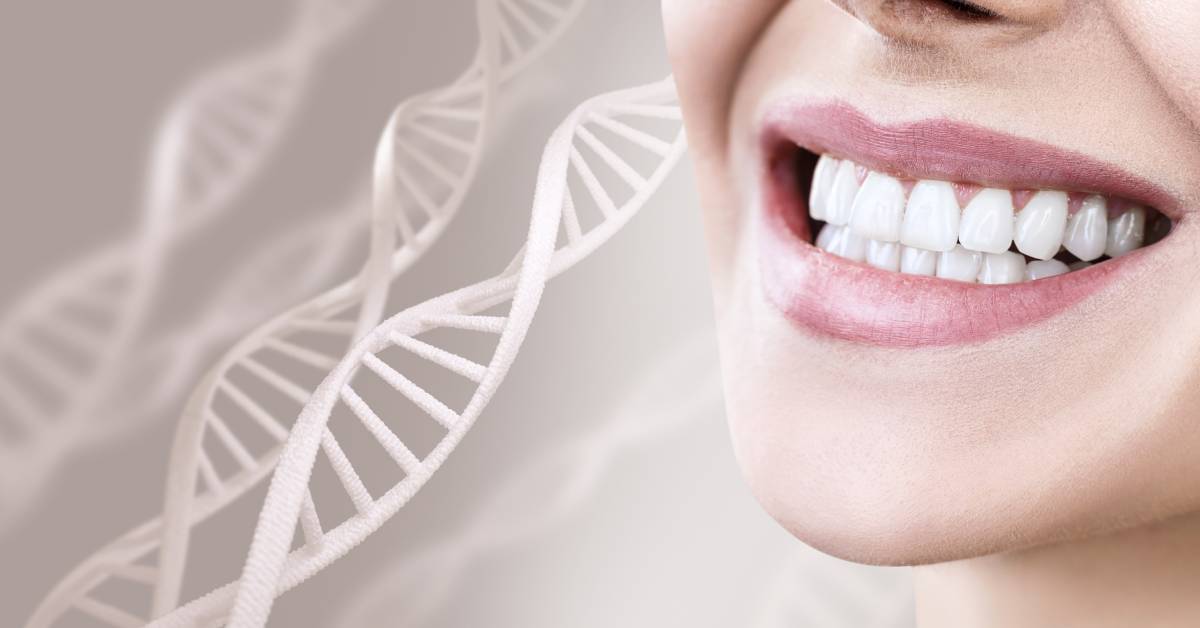
You might think about how your family’s genetics affect your body. However, you also need to consider if various traits can impact your teeth. Genetics can significantly impact your oral health. Fortunately, you can use the following information to your advantage. From avoiding potential oral health risks to maintaining excellent hygiene, read on to learn about the role of genetics in your dental health.
Genetics Can Impact the Shape of Your Teeth and Jaw
One way that genetics play a part in your oral health is by affecting the shape of your teeth and jaw. Your genetic blueprint can determine whether your teeth are naturally large or small and whether your bite aligns or not.
An overbite or underbite may be part of your genetic inheritance, determining how you chew and smile. Even the spacing and size of your jawbones have a genetic component. Knowing your family’s dental history aids in your ability to predict potential challenges and adapt to them.
Genetics Play a Role in Tooth Alignment
Genetic factors can also influence whether you have straight or crooked teeth. Some people are predisposed to crowded teeth or teeth with spaces than others due to inherited genes.
Alternatively, you might have a genetic condition that affects jaw development. Tooth alignment issues are more than cosmetic concerns; they can impact your bite, speech, oral hygiene, and jaw joint.
Routine checkups with a dentist will monitor teeth alignment. Teeth straightening services like clear aligners provide solutions for correcting certain types of misalignments. Other types of misalignments may necessitate referral to the orthodontist. Early assessment of tooth location is especially important for children to promptly detect problems and intervene while they’re growing.
Genetics May Affect the Level of Enamel

Tooth enamel is the protective outer layer of your teeth. Genetics determine the hardness and thickness of the enamel. Some people naturally possess thicker enamel, so they have better protection against decay and wear.
Other individuals might have thinner enamel, making them more vulnerable to cavities and sensitivity. This genetic predisposition underscores the importance of diligent oral care to help reduce the risk of tooth decay.
Genetics Can Increase the Risks of Gum Disease or Oral Cancer
Another example of the role of genetics in your dental health is how it can dictate a person’s susceptibility to gum disease and oral cancer. If your family has a history of periodontal issues, your risk for gum disease increases.
Similarly, some genetic mutations heighten the risk of developing oral cancer. Although smoking cigarettes and drinking alcohol can escalate your chances of developing these conditions, it’s essential to understand your genetic susceptibility.
Genetics Can Affect Saliva Composition

Saliva aids in digestion, neutralizing acids, and providing disease-fighting substances. Therefore, your saliva plays a vital role in your dental health. However, your family’s genetic traits can impact the level of protection saliva provides for your oral hygiene and overall health.
Dry mouth occurs when the body doesn’t produce enough saliva; daily actions like chewing and swallowing become difficult. Staying hydrated with water and eating sugar-free candy or gum will boost the amount of saliva in your mouth. In addition, ask a dentist or pharmacist about saliva substitutes you can purchase, even without a prescription.
Tips To Prevent Dental Issues
Even if you inherit these genetic predispositions, there are several effective strategies for maintaining dental health. Integrate the following practices into your daily routine:
Take Good Care of Your Teeth
Consistent oral hygiene is the foundation of healthy teeth and gums. Brush your teeth twice daily and floss once every day to impede cavities and gum disease. An electric toothbrush is a great tool that helps you reach areas of the mouth that a regular brush typically misses.
Using an alcohol-free mouth rinse that contains fluoride also helps strengthen the teeth, making them more resistant to cavities while reducing bad breath. You should also replace your manual toothbrush or electric toothbrush head every three months to ensure effectiveness while brushing.
Avoid Smoking Cigarettes
Another way to avoid dental issues is to give up smoking. This habit will only increase your chances of gum disease and oral cancer.
The nicotine and tar in cigarettes decrease the gums’ ability to heal by delaying them from getting the blood they need. When you stop smoking, you’ll also make great strides in your overall health, reducing the chances of other harmful conditions like heart disease and cancer.
Those struggling to quit should seek support from healthcare professionals or cessation programs offering guidance and encouragement. Dropping your smoking habit will give you a better quality of life and improve your overall health.
Manage Your Diabetes
If you have diabetes, it is critical that you visit your doctor regularly to appropriately manage your condition. People with uncontrolled diabetes are at a high risk of developing gum disease and dental infections.
Your HbA1c should be less than 7.0. Regularly monitor your blood sugar, and be sure to have a good snack before you visit the dentist so that your blood sugar doesn’t drop during the appointment. On the other hand, you also don’t want your blood sugar to get too high. Bring water and any prescribed medications to keep your blood sugar in the safe, normal range. This will help prevent an emergency situation that may arise due to unusually high or low blood sugar.
Eat Healthy Foods
A nutritious diet is beneficial for the body’s overall well-being and oral health. For example, fruits, vegetables, and lean proteins will provide essential nutrients that strengthen teeth and gums.
Limiting sugary and acidic foods prevents tooth decay. When indulging in sweets, rinse your mouth with water afterward to neutralize acids and reduce plaque buildup.
Genetic factors can significantly influence dental health, but your actions can prevent severe outcomes. Use the tips above to minimize these risks and enjoy a healthy, confident smile for decades.
Pinnacle Dental Associates helps our patients achieve better oral health. In addition to dental checkups, we offer various treatments, including clear braces that will help you avoid the discomfort and limitations of metal ones. Schedule an appointment with our family dental practice in Albany, Oregon today!
